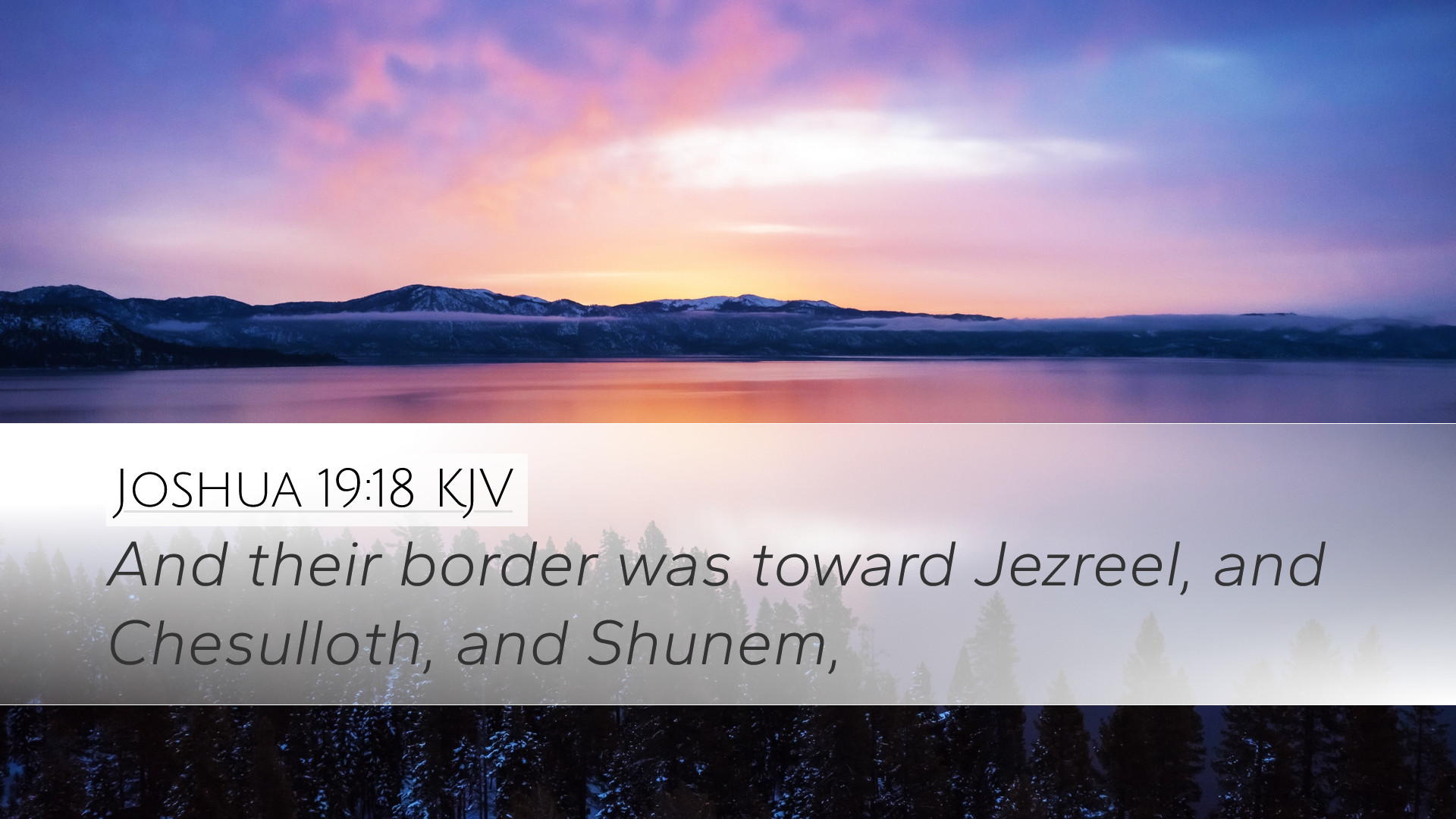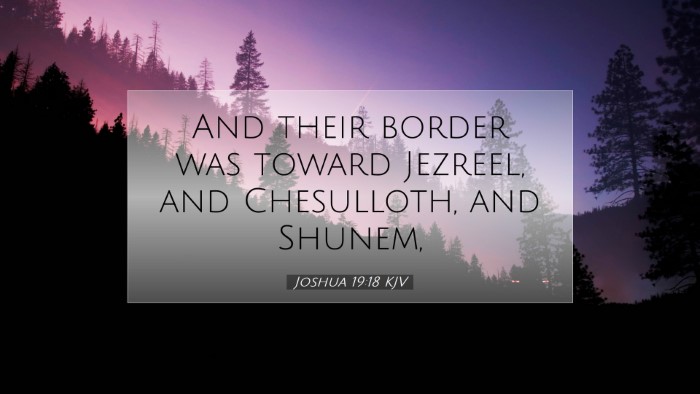Commentary on Joshua 19:18
Text of Joshua 19:18: "And their border was from Helkath to the waste city of Zidon."
Introduction
This verse is part of the narrative chronicling the division of the Promised Land among the tribes of Israel. Joshua 19 describes the inheritance allotted to several tribes, and verse 18 specifically details the territory assigned to the tribe of Zebulun. Understanding the geographical and spiritual implications of this verse is crucial for pastors, students, theologians, and Bible scholars.
Historical Context
The context of Joshua 19:18 lies in the conquest and settlement of Canaan by the Israelites. After wandering for forty years in the wilderness, the Israelites, under Joshua's leadership, began the process of occupying the land promised to their forefathers. This occupation involved not only military conquest but also the systematic distribution of land among the twelve tribes of Israel.
Significance of Zebulun’s Inheritance
The land allocated to Zebulun was significant for several reasons:
- Geographical Position: Zebulun's territory was strategically located near key trade routes and coastal access, enhancing both economic and cultural exchanges.
- Spiritual Legacy: The tribe played a vital role in the broader narrative of Israel's history and the fulfillment of God's promises.
Commentary Insights
Matthew Henry's Commentary
Matthew Henry remarks that the boundaries of Zebulun are delineated in this verse as a continuation of God's faithfulness in fulfilling His promises. He emphasizes that the careful specification of borders reflects God's providence in assigning responsibilities and opportunities to each tribe. Zebulun, he notes, was destined to be a tribe engaged in commerce and interaction with neighboring nations, further hinting at its future role in Israel's socio-economic landscape.
Albert Barnes' Notes
Albert Barnes elucidates that the "waste city of Zidon" as referenced connects the territory of Zebulun with the influential city of Sidon. He elaborates on the geographical significance of this border, explaining that it not only delineates where Zebulun would settle but also positions them in a location ripe for interaction with other cultures and nations. His commentary also refers to the emerging narrative of Zebulun's identity, particularly their military and economic characteristics, suggesting that these geographical boundaries reflected not merely land ownership but also future blessings and responsibilities that the tribe would undertake.
Adam Clarke's Commentary
Adam Clarke provides a detailed examination of the term "Helkath" and "the waste city." He indicates that Helkath may refer to a place of abundance and fertility, juxtaposing the arid or "waste" nature of Zidon. Clarke notes that this duality presents a powerful metaphor for spiritual growth, implying that Zebulun’s journey would involve moving from desolation to abundance under God's guidance. He also highlights the fulfillment of Jacob's prophetic blessing over Zebulun which stated that they would dwell by the haven of the sea and be a haven for ships, further emphasizing God's sovereignty in orchestrating the destiny of the tribes.
The Spiritual Implications
For pastors and theologians, the verse presents rich spiritual implications:
- God’s Sovereignty: The precise allocation of territories showcases God's directive hand in guiding His people towards a divinely orchestrated future.
- Identity and Mission: Zebulun represents a tribe that would serve a unique purpose among Israel, reminding believers that each person and community has a divinely appointed role in God's plan.
- Transformational Journey: The metaphorical transition from "waste" to "abundance" invites reflection on the spiritual journey of individuals moving from desolation to fulfillment through divine intervention.
Conclusion
Joshua 19:18 serves as a pivotal verse in understanding the intricate tapestry of Israel's history and the personal journey of believers. As we examine the assigned territory of Zebulun, we not only explore geographical boundaries but also the profound implications of God's providence, the identity of His people, and the hope of spiritual renewal. This verse invites deeper reflection on how God equips His people for their unique callings and the ongoing narrative of His redemptive work throughout history.


